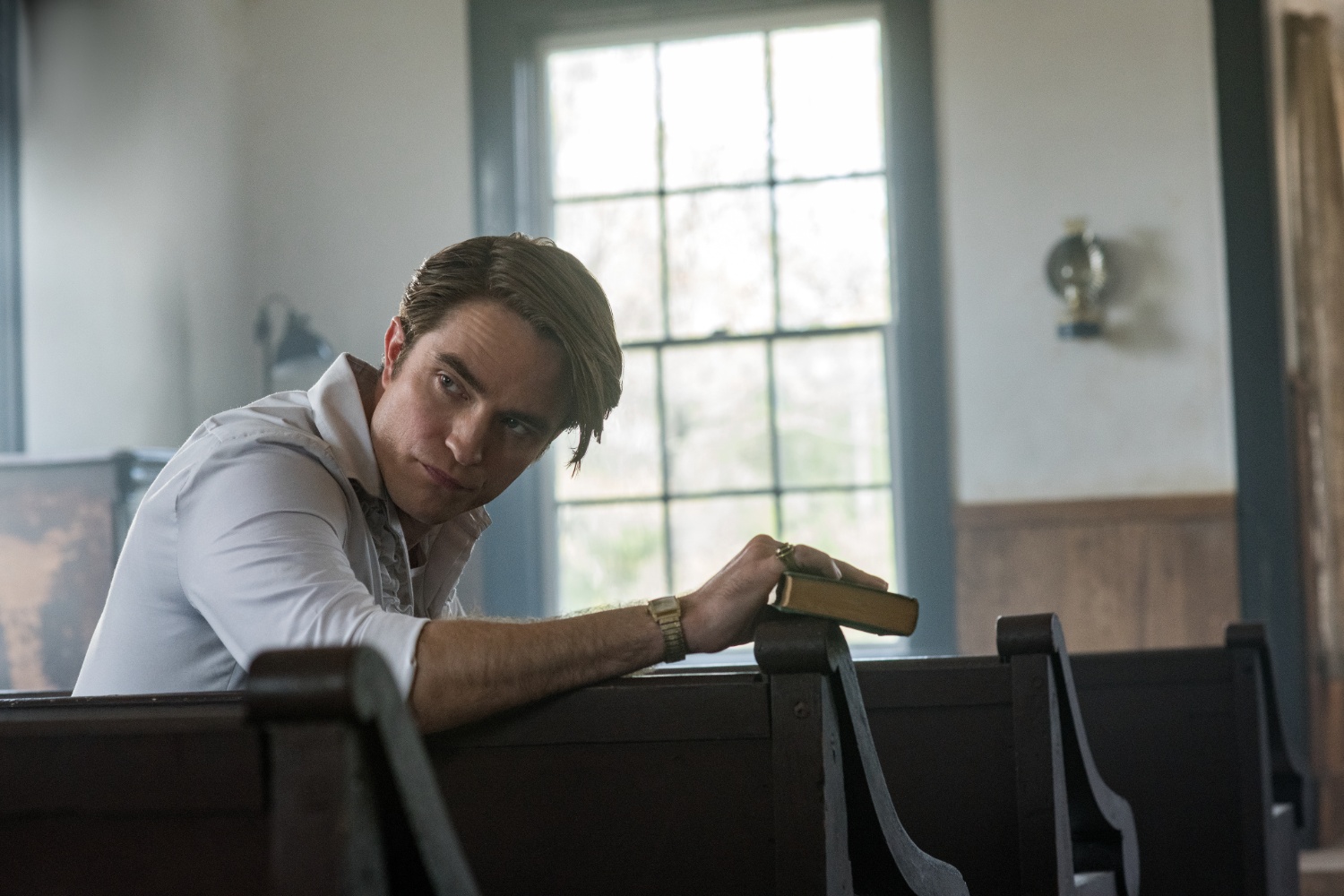Is it cynical or bitter? That’s a hill I find myself dying on on a regular basis, so it only makes sense for The Devil All the Time to add to the pile. Written by Antonio Campos & Paulo Campos from Donald Ray Pollock’s novel of the same name, this adaptation hints at being both. Its depictions of violence are detached and objective. Its characters’ actions are often anything but. Campos’ fifth feature examines that cognitive dissonance at times, but that dissonance itself feels incidental. Too amoral to be cynical and too stagnant to be bitter, this Gothic tale confuses its pieces just enough to prevent it from leaving an impact.
It’s not for a lack of trying, though. Here’s a saga of around 10 main characters and more than a few jumps in its timeline. After serving in the Solomon Islands in 1945, veteran Willard Russell (Bill Skarsgård) meets a waitress named Charlotte (Haley Bennett). Years later comes a son, Arvin (Michael Banks Repeta), who grows into a good ol’ Ohio boy (Tom Holland). But that’s not the third of it: Later in the mix come the solitary Helen (Mia Wasikowska); her delusional preacher husband, Roy (Harry Melling); and their daughter, Lenora (Eliza Scanlen). All the while, necrophiliac killer Carl (Jason Clarke) goes on a crime spree with his new lover, Sandy (Riley Keough).
And yes, they all connect—more or less. The Devil All the Time lives and dies on linking everyone’s issues, but that isn’t to say it has enough faith in its ability to do so. Pollock himself narrates, and the movie says what its characters do and feel time and time again. As a result, it can feel less like an adaptation of a novel than a book someone threw at the screen. From its pacing to points of view, the script can go too far narratively and not far enough elsewhere.
Whether the filmmakers’ had such appreciation for the novel as to not change it is damn near irrelevant. As is, the film doesn’t feel all that cinematic. It has a sense of place, but Antonio Campos’ direction can lack texture, relying on Lol Crawley’s talents as a cinematographer. The latter gives the overcast look he brought so well to 45 Years and Vox Lux, and while it’s curiously crisp for 35mm, his shadows breathe in more personality than the directing does. Sofía Subercaseaux does commendable work in editing, but she’s often at the mercy of Campos as a director. In fact, several technical facets are at the mercy of another, and it’s quite ironic given the material.
The movie posits itself as a cautionary tale about trusting others, but the distance from which it approaches everyone mutes the experience. References, decisions, and flashbacks refer or allude to larger points. Alas, its look at the mutual exclusivities and similarities between religion and economics don’t add up to much. The Devil All the Time is too amoral to make a real point. Even more frustratingly, its runtime, as hefty as it seems at points, isn’t enough to do these themes justice.
Instead, it’s up to the cast to flesh out the jaunt. Clarke is unintimidating on his own, but Keough’s presence lifts him up most of the time. Bennett and Scanlen try and mostly succeed to liven up their underwritten parts, and Robert Pattinson brings some welcome dark humor in an admittedly underwhelming role. (At least he doesn’t get as short an end of the stick as Wasikowska does.) It’s Holland’s movie in the end, however, his work revealing itself as everyone descends further into madness. It’s just a shame that madness isn’t palpable enough. Misanthropy is all well and good, but The Devil All the Time doesn’t understand its own worldview.
The Devil All the Time is now on Netflix.

